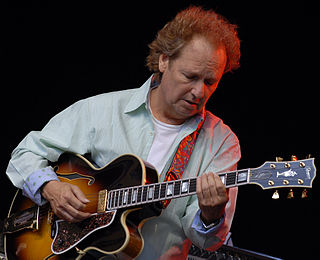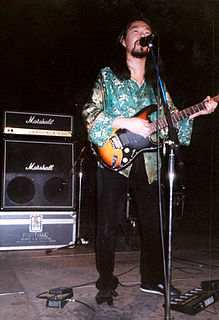Top 1189 Latin Quotes & Sayings - Page 20
Explore popular Latin quotes.
Last updated on December 23, 2024.
What happens is all these things we're seeing – campylobacter, E coli, mad cow, listeria, salmonella, that weren't even in the lexicon 30 years ago – that is the industrial paradigm exceeding its efficiency. So these Latin squiggly words that we're learning to say – bovine spongiform encephalopathy – are nature's language screaming to us: ENOUGH! And the question then is: what will it take for us to listen? And my contention is that Wall Street is still wearing conquistador mentality and uniforms, and nobody is listening to the pleadings of nature saying: 'Enough.'
The subject matter covered in Carmina stays pretty basic: love, lust, the pleasures of drinking and the heightened moods evoked by springtime. These primitive and persistently relevant themes are nicely camouflaged by the Latin and old German texts, so the listener can actually feign ignorance while listening to virtually X-rated lyrics. (Veni Veni Venias! Come, come come now!)The music itself toggles between huge forces and a single voice, juxtaposing majesty and intimacy with ease.
If you look at social movements in Latin America, there are spaces where alternative politics are thought about on the ground, at the grassroots level, but they are always under threat. The problem in North Africa and the Middle East is the politics of oil. It means that the spaces for truly grassroots politics, involving those masses of people excluded from high politics, are very quickly closed down. They are not really allowed any kind of autonomy to develop, and that seems to be the real problem, which gets us back to the neo-colonial relationship.
Jorge Luis Borges was lamenting a variety of Orientalism that was used to measure the alleged authenticity of Argentine and Latin American writers in the midcentury. The Argentine literary tradition was believed by many, including many Argentines, to be concerned with a national imaginary in which the gauchos and the pampas and the tango were fundamental tropes. Borges, in part to legitimize his own Europhilia, correctly pointed out that expecting writers to engage with these romantic nationalist tropes was arbitrary and limiting, a genre that was demonstrative of its own artificiality.
Anything, even the conceptually most complex material, can be written for general audiences without any dumbing down. Of course you have to explain things carefully. This goes back to Galileo, who wrote his great books as dialogues in Italian, not as treatises in Latin. And to Darwin, who wrote The Origin of Species for general readers. I think a lot of people pick up Darwin's book and assume it must be a popular version of some technical monograph, but there is no technical monograph. That's what he wrote. So what I'm doing is part of a great humanistic tradition.
And this shows that people want to be stupid and they do not want to know the truth. And it shows that something called Occam's razor is true. And Occam's razor is not a razor that men shave with but a Law, and it says: Entia non sunt multiplicanda praeter necessitatem. Which is Latin and it means: No more things should be presumed to exist than are absolutely necessary. Which means that a murder victim is usually killed by someone known to them and fairies are made out of paper and you can't talk to someone who is dead.
Courage is a heart word. The root of the word courage is cor - the Latin word for heart. In one of its earliest forms, the word courage meant "To speak one's mind by telling all one's heart." Over time, this definition has changed, and today, we typically associate courage with heroic and brave deeds. But in my opinion, this definition fails to recognize the inner strength and level of commitment required for us to actually speak honestly and openly about who we are and about our experiences -- good and bad. Speaking from our hearts is what I think of as "ordinary courage.
Oh my, I've just discovered what science shows us about our humble but spectacular place in the universe, and I have to say: it is thrilling and mind-boggling beyond all imaginings! It makes the Bible so puny and uninspired, and certainly less poetic, by comparison. I'm terribly sorry. I sincerely misunderstood so much. I almost wish there were a God so I could be punished for all the suffering I have obliviously caused in the world. But since there will be no cosmic punishment for me, I will spend what time I have left working in a family planning clinic in Latin America. Good day.
"True science has no belief," says Dr. Fenwick, in Bulwer-Lytton's 'Strange Story;' "true science knows but three states of mind: denial, conviction, and the vast interval between the two, which is not belief, but the suspension of judgment." Such, perhaps, was true science in Dr. Fenwick's days. But the true science of our modern times proceeds otherwise; it either denies point-blank, without any preliminary investigation, or sits in the interim, between denial and conviction, and, dictionary in hand, invents new Graeco-Latin appellations for non-existing kinds of hysteria!
There are leaks from the Embassy in Honduras. There was a coup in 2009. Obama broke with most of Latin America and even Europe and supported the military coup, still does. The ambassador in Honduras sent back a detailed analysis saying the coup was military, illegal, unconstitutional, and that the legitimate president was thrown out. Okay, we now know that Washington was perfectly aware of that and decided to support the military coup anyway. We should have known that at the time. The government has no right to keep that information secret.
Paris, hours in the café, a certain spirit of rebellion, one side a bit too stubborn, the sea, the true, in Bretagne, the walking in Provence, the taste, the passion for literature, the libraries, the beautiful editions, remaking the world in a set of hours around a table and a bottle of wine. Talking without really saying nothing, just for the pleasure of talking. The museums, the theatres, the elegance, the delicacy, the heritage of the Illustration, a humanistic philosophy. The balance we got between a nordic rigor and a latin savoir-vivre, the insolence and the freedom.
How shall we define occultism? The word is derived from the Latin occultus, hidden; so that it is the study of the hidden laws of nature. Since all the great laws of nature are in fact working in the invisible world far more than in the visible, occultism involves the acceptance of a much wider view of nature than that which is ordinarily taken. The occultist, then, is a man who studies all the laws of nature that he can reach or of which he can hear, and as a result of his study he identifies himself with these laws and devotes his life to the service of evolution.
I wish more fantasy, especially the dominant fantasy that draws heavily on British and Christian lore, would wrestle with its own ethnospecific nature and what that means when the story is set somewhere where more than one belief system is in operation. If all you do is pay lip service to it, you can get the kind of thing where the writer has thrown one Hindu god into a Christianist fantasy (rendering said god by default a demon or otherwise inferior to the dominant religious system of the story, which is such an insult), and the hero is able to vanquish it by chanting a spell in church Latin.
Industrialized countries have disproportionately more cancers than countries with little or no industry (after adjusting for age and population size). One half of all the world's cancers occur in people living in industrialized countries, even though we are only one-fifth of the world's population. Closely tracking industrialization are breast cancer rates, which are highest in North America and northern Europe, intermediate in southern Europe and Latin America, and lowest in Asia and Africa.
The Aedes aegypti mosquito, which spreads dengue fever and yellow fever, has traditionally been unable to survive at altitudes higher than 1,000 meters because of colder temperatures there. But with recent warming trends, those mosquitoes have now been reported at 1,240 meters in Costa Rica and at 2,200 meters in Columbia. Malaria-bearing mosquitoes, too, have moved to higher elevations in central Africa, Asia, and parts of Latin America, triggering new outbreaks of the disease.
A mass of Latin words falls upon the facts like soft snow, blurring the outline and covering up all the details. The great enemy of clear language is insincerity. When there is a gap between one's real and one's declared aims, one turns as it were instinctively to long words and exhausted idioms, like a cuttlefish spurting out ink. In our age there is no such thing as 'keeping out of politics'. All issues are political issues, and politics itself is a mass of lies, evasions, folly, hatred, and schizophrenia. When the general atmosphere is bad, language must suffer.
Suttree surfaced from these fevered deeps to hear a maudlin voice chant latin by his bedside, what medieval ghost come to usurp his fallen corporeality. An oiled thumball redolent of lime and sage pondered his shuttered lids.Miserere mei, Deus ...His ears anointed, his lips ... omnis maligna discordia ... Bechrismed with scented oils he lay boneless in a cold euphoria. Japheth when you left your father's house the birds had flown. You were not prepared for such weathers. You'd spoke too lightly of the winter in your father's heart. We saw you in the streets. Sad.
People always say that music is a universal language. It was very, very true. We could show up anywhere with any people speaking different languages and we could just be like, "You want to play that song? Yeah, okay." We would usually want to play Latin American songs, and they would usually want to play Santana or Jimi Hendrix and stuff like that. So we would trade off. So yeah, we were able to make a lot of friends that way and meet a lot of local musicians. It was a great experience.
but do i need to say anything?" sophie asked. "do i need to learn any words?" "like what?" saint-germain said. "well, when you lit up the eiffel tower, you said something that sounded like eggness" "ignis" the count said. "latin for fire. no, you don't need to say anything." "then why did you do it, then?" sophie asked. saint-germain grinned. "i just thought it sounded cool.
Of course each citizen should try to educate him or herself, but only after receiving some essential, basic blocks of knowledge. Formal education should always be free; from kindergarten to PhD. It is free in many European countries, and in several Latin American ones (including Cuba, Mexico and Argentina). China is returning to free education, as it is returning to universal health care. In countries like Chile, people are on the streets right now fighting for free education, and they are winning!
It is worth remembering that every writer begins with a naively physical notion of what art is. A book for him or her is not an expression or a series of expressions, but literally a volume, a prism with six rectangular sides made of thin sheets of papers which should include a cover, an inside cover, an epigraph in italics, a preface, nine or ten parts with some verses at the beginning, a table of contents, an ex libris with an hourglass and a Latin phrase, a brief list of errata, some blank pages, a colophon and a publication notice: objects that are known to constitute the art of writing.
The people of Indonesia have to learn, realize, that fighting for a better country is great and inspiring. Like those men, women, and even children in Latin America understood many decades ago! Young people especially, should know: Rebellion is good. Revolution is good. Thinking is good. Progress is good. To be a revolutionary, a rebel, is cool - very cool. Much cooler than driving a red or yellow Ferrari bought with the money your daddy has stolen from the poor!
Disagreement produces debate but dissent produces dissension. Dissent (which come from the Latin, dis and sentire) means originally to feel apart from others. People who disagree have an argument, but people who dissent have a quarrel. People may disagree and both may count themselves in the majority. But a person who dissents is by definition in a minority. A liberal society thrives on disagreement but is killed by dissension. Disagreement is the life blood of democracy, dissension is its cancer.
Latin America can no longer tolerate being a haven for United States liberals who cannot make their point at home, an outlet for apostles too "apostolic" to find their vocation as competent professionals within their own community. The hardware salesman threatens to dump second-rate imitations of parishes, schools and catechisms -- out-moded even in the United States -- all around the continent. The traveling escapist threatens further to confuse a foreign world with his superficial protests, which are not viable even at home.
President Obama's been reaching out to Iran, reaching out to Cuba, reaching out to Latin America. The only place he can't seem to be able to reach out to: Texas. ... Despite Governor Rick Perry talking about how Texas could secede from the Union if it wanted to, 75 per cent of the people who live there want to stay in the United States. Of course they want to stay. I mean, after spending all that time and effort sneaking across the border to get here, why would they want to leave?
Once I spoke about this subject among a group of English intellectuals. One of them was a professor on Roman Law at one of the leading British universities. I asked him,what was the official language of the Byzantine Empire? He said, maybe sometime in the sixth or the seventh century.The Justinian Codex, the rule of law in the Byzantine Empire which was produced by Emperor Justinian, it was written in Latin.And he looked at me ,he knew that I knew already that the only original copy was found in the beginning of the sixteenth century.
With what moral authority can they speak of human rights - the rulers of a nation in which the millionaire and beggar coexist; the Indian is exterminated; the black man is discriminated against; the woman is prostituted; and the great masses of Chicanos, Puerto Ricans, and Latin Americans are scorned, exploited, and humiliated? How can they do this - the bosses of an empire where the mafia, gambling, and child prostitution are imposed; where the CIA organizes plans of global subversion and espionage, and the Pentagon creates neutron bombs capable of preserving material assets and wiping out human beings.
Incidentally, I am intrigued by how many European and Latin American writers expressed their political views in the columns they routinely wrote or write in the popular press, like Saramago, Vargas Llosa, and Eco. This strikes me as one way of avoiding opinionated fiction, and allowing your imagination a broader latitude. Similarly, fiction writers from places like India and Pakistan are commonly expected to provide primers to their country's histories and present-day conflicts. But we haven't had that tradition in Anglo-America.
I suppose there is no place in the world where snobbery is quite so ever-present or where it is cultivated in such refined and subtle forms as in an English public school. Here at least one cannot say that English ‘education’ fails to do its job. You forget your Latin and Greek within a few months of leaving school — I studied Greek for eight or ten years, and now, at thirty-three, I cannot even repeat the Greek alphabet — but your snobbishness, unless you persistently root it out like the bindweed it is, sticks by you till your grave.
Trump is much, much worse than people understand. In his ideal world, you would have an alliance between Trump, Putin, Marine Le Pen, maybe a right winger might knock off Merkel in Germany, and you'd have this sort of, essentially, a nationalist populist alliance that can only be made sense of when seen as a right-wing, white nationalism against the world. Because, who do they want to fight? They want to fight Asia and China, they want to fight Latin America and Mexico.
In college, I had a course in Latin, and one day the word "divorce" came up. I always figured it came from some root that meant "divide." In truth, it comes from "divertere," which means "to divert." I believe that. All divorce does is divert you, taking you away from everything you thought you knew and everything you thought you wanted and steering you into all kinds of other stuff, like discussions about your mother's girdle and whether she should marry someone else.
The way Spain has now behaved in Catalonia, after the referendum, is a total disgrace. If this continues, it will all reach the point of no return. You cannot start sexually harassing women and then break their fingers, one by one, because they want to have their own state. You cannot injure hundreds of innocent people, who simply don't want to be governed from Madrid. That's absurd and thoroughly sick! Spain used to commit holocausts all over what is now called Latin America, so it is 'in their blood'. But I don't think Catalans will allow this to be done to them.
Migration is an opportunity, not a problem. And in the sense that it is an opportunity, it goes on to a bilateral agreement, between Mexico and the US, the US and the Dominican Republic, whatever you wish, and it has to be a multilateral, international event. I am in favor of an international union of migrant workers that really takes on the problems that affect Europe, with the migrants coming from Africa, and the US with the migrants coming from Latin America. It has to be considered an international question, with international solutions, and with no problems national or international.
Art and poetry cannot do without one another. Yet the two words are far from being synonymous. By Art I mean the creative or producing, work-making activity of the human mind. By Poetry I mean, not the particular art which consists in writing verses, but a process both more general and more primary: that intercommunication between the inner being of things and the inner being of the human Self which is a kind of divination (as was realized in ancient times; the Latin vates was both a poet and a diviner). Poetry, in this sense, is the secret life of each and all of the arts.
Latin America is very fond of the word "hope." We like to be called the "continent of hope." Candidates for deputy, senator, president, call themselves "candidates of hope." This hope is really something like a promise of heaven, an IOU whose payment is always being put off. It is put off until the next legislative campaign, until next year, until the next century.
When I was a little kid wanting to play music, it was because of people like Pete Johnson, Huey Smith, Allen Toussaint, Professor Longhair, James Booker, Art Neville ... there was so many piano players I loved in New Orleans. Then there was guys from out of town that would come cut there a lot. There was so many great bebop piano players, so many great jazz piano players, so many great Latin piano players, so many great blues piano players. Some of those Afro-Cuban bands had some killer piano players. There was so many different things going on musically, and it was all of interest to me.
With My Dog-Eyes by Hilda Hilst got more exposure and reached far more readers than I ever expected. Even my editor at Melville House, who championed the project form the outset, told me she was surprised by the response. After this, editors began asking my opinion about which Latin American writers ought to be translated. I realized I had some cultural capital to spend, and I wanted to use it to introduce another author who might be considered a risk by conventional publishers. Michael Noll was at the top of my list.
It is almost impossible to translate verbally and well at the same time; for the Latin (a most severe and compendious language) often expresses that in one word which either the barbarity or the narrowness of modern tongues cannot supply in more. ...But since every language is so full of its own proprieties that what is beautiful in one is often barbarous, nay, sometimes nonsense, in another, it would be unreasonable to limit a translator to the narrow compass of his author's words; it is enough if he choose out some expression which does not vitiate the sense.
What a contrast between the stern and desolate poetry of Ossian, and that of Chaucer, and even of Shakespeare and Milton, much more of Dryden, and Pope, and Gray! Our summer of English poetry, like the Greek and Latin before it, seems well advanced towards its fall, and laden with the fruit and foliage of the season, with bright autumnal tints, but soon the winter will scatter its myriad clustering and shading leaves, and leave only a few desolate and fibrous boughs to sustain the snow and rime, and creak in the blasts of age.
Just when I get my church all sorted out, sheep from the goats, saved from the damned, hopeless from the hopeful, somebody makes a move, get out of focus, cuts loose, and I see why Jesus never wrote systematic theology. So you and I can give thanks that the locus of Christian thinking appears to be shifting from North America and northern Europe where people write rules and obey them, to places like Africa and Latin America where people still know how to dance.
If you don't have that science and technology and brains as an input, as you don't have in large parts of Latin America, if you don't focus your education on that, if you don't find your 10,000 best scientists, but you do find your 10,000 best soccer players, the consequences are, you become a World Cup Champion in Soccer, like Brazil, but you don't become Korea, which earned 1/5 of what a Mexican did in 1975 and today earns five times more.
Taking the continent as a whole, this religious tension may be responsible for the revival of the commonest racial feeling. Africa is divided into Black and White, and the names that are substituted- Africa south of the Sahara, Africa north of the Sahara- do not manage to hide this latent racism. Here, it is affirmed that White Africa has a thousand-year-old tradition of culture; that she is Mediterranean, that she is a continuation of Europe and that she shares in Graeco-Latin civilization. Black Africa is looked on as a region that is inert, brutal, uncivilized - in a word, savage.
A lot of attention has been paid in Latin America to the new generation of nonfiction writers, authors like Julio Villanueva Chang, Diego Osorno, Cristóbal Peña, Gabriela Wiener, Leila Guerriero, Cristian Alarcón, among others. These are writers doing important, groundbreaking work. So the talent is there, as is the habit of radio listenership, and what we propose to do is unite the two. We want to have these immensely gifted journalists - men and women who've already revitalized the long-form narrative - we want them to tell their stories in sound.
Well, Smoke n' Mirrors has very much a world music flavor and it doesn't park itself in one country. It borrows heavily from the Brazilian angle, which is dear to my heart, and I recorded several albums with that flavor. Probably even more so than the Brazilian flavor, there's an African, South African and West African influence and on a couple of other tracks there's some Latin flavor and there's some Indian tables on one track, all centered around my jazz guitar and acoustic guitars, and very much a Lee Ritenour sound.
I would be happy if I could meet some musicians interested in different acoustics and traditional music. Maybe I will find some Native American or Latin tunes. Anything. Even maybe a great heavy metal guitar player or drummer, and we can do something wild together. My next step is making more music without formats or borders. Not just simple songs or doing covers, but music with more ideas. I think it will again be a synthesis with something else.
Talk loud enough about human rights and it gives the impression of democracy at work, justice at work. There was a time when the United States waged war to topple democracies, because back then democracy was a threat to the Free Market. Countries were nationalising their resources, protecting their markets.... So then, real democracies were being toppled. They were toppled in Iran, they were toppled all across Latin America, Chile.
The main reason I decided to study Latin American literature was because I'd gotten somewhat bored by the American fiction I was reading. I am not drawn to a specific style or aesthetic. When I think about literature, I think about it in the three languages I read easily - English, Spanish, and Portuguese. The authors I prefer are all very different and are not limited to certain genres or even certain time periods. Reading across three languages is a way for me to diversify my intake as a reader, not to tunnel into certain categories or demographics.











































